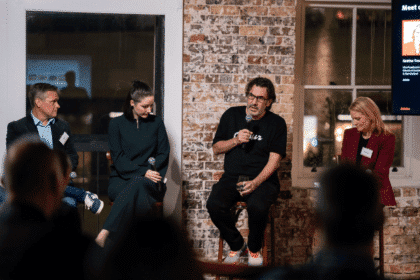The commercial radio industry has expressed its concerns at calls to scrap a cap on how much local radio stations need to pay Aussie music creators.
Current legislation, set in 1960, means commercial radio needs to pay local music providers one per cent of revenue.
However many in the music industry, including Australian label Mushroom – famed for launching the music careers of Kylie Minogue, Jimmy Barnes and Vance Joy – have called for the cap to be scrapped saying it is a “difficult” time for music.
“It’s a very tough time for Australian artists and Australian labels. So we’ve got to make sure that we are getting every cent that we are due. And that’s just not happening concerning the use of our music on radio,” chief operating Chris Maund said. “I’m very worried.”
This month there is a public hearing for the Copyright Legislation Amendment (Fair Pay for Radio Play) Bill 2023.

The Bill would result in the removal of the cap on fees radio stations pay to the Phonographic Performance Company of Australia (PPCA) to play music. PPCA’s shareholders are three multinational record labels.
The commercial radio industry and media union have expressed concern that a proposed change to the Copyright Act could harm the sustainability of local radio in regional and remote communities and result in a further reduction of local media content.
The Media, Entertainment and Arts Alliance (MEAA) and Commercial Radio & Audio (CRA) have each made submissions to the Senate inquiry ahead of public hearings this month.
“If multinational record labels are allowed to hike up radio’s music fees it would harm the sustainability of stations – particularly in regional and remote communities where local media has already diminished,” said CRA chief executive officer Ford Ennals.

“Radio is already paying almost $40 million a year in fees – any increase to this would hurt radio, which in turn hurts music. Radio plays an important role in promoting and supporting Australian artists and music and we want this to continue.”
MEAA campaigns director Paul Davies said the real imbalance of power does not lie with radio, but with record labels and performers: “Record labels have historically wielded their commercial power over artists – and the performer rarely comes out on top,” Mr Davies said.
“The MEAA represents musicians and songwriters, but our members also include people working in radio and journalists, and the impact of any fee increase should be weighed up against the effect it would have on local and regional radio.
“We need to look at the bigger picture – the vast majority of musicians are cut out of payment for broadcasted music by the record companies under the current system, so we are concerned about any potential of entrenching and expanding an unfair system,” he said.








